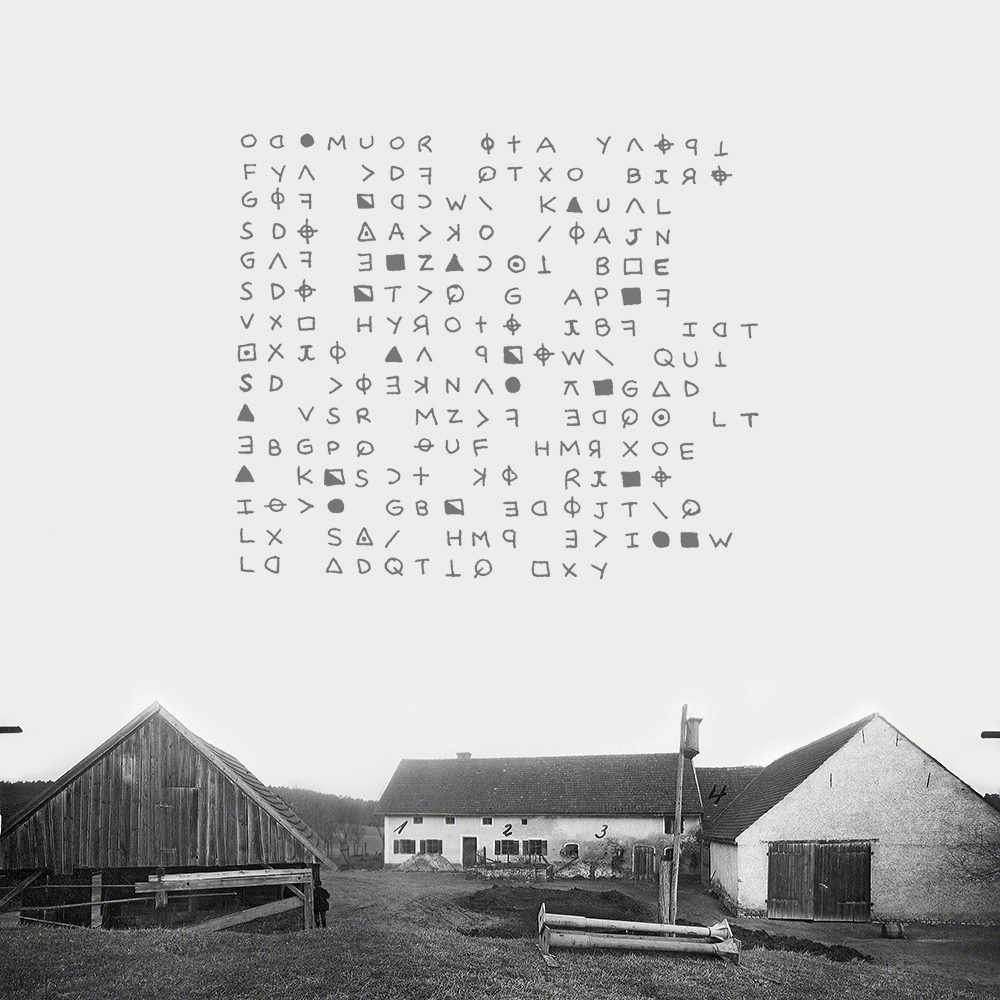Giles Corey is alive and well. Or at least Daniel Barrett is, whose stage name is the same as the 17th century farmer who was pressed to death after refusing to plead innocent or guilty to the charge of witchcraft. On 2011’s devastating Giles Corey, Barrett trudged through the darkest moments of depression, finding a retreat from what could have been his end by (most likely) creating a fictitious character so real (the illustrious cult leader, Robert Voor) it made more sense to assume he existed, and to consequently become obsessed with the world this person occupied. The album was (and still is) a heavy listen that fills me with an exciting dread just by thinking about it, but from the moment Barrett closed that chapter of his life, there was a question as to where Giles Corey could go next.
It’s near impossible to imagine Barrett taking his music into a darker realm as skirting along the edge of non-existence is about as dark as you can get; and moving into a brighter space seems misplaced for what Giles Corey seems to stand for as a moniker. His new three-track EP manages to make a logical step forward. Hinterkiafeck is a take on a mysterious set of unsolved murders that happened in a reclusive German farm about ninety years ago. Barrett assumes the role of both those who lived on the farm and the perpetrator who ended up killing them all, if not also becoming the house and farmland itself, speaking as walls would if they could talk about what they’ve seen. Although just three tracks, Barrett still explores plenty of ground here, and though less intensely personal than his previous album, it’s still undeniably chilling.
“Winter’s House” portrays a recluse from society, someone ignored and raised from anger and despair and forgotten about by others. “They don’t know, they don’t care/ they don’t notice that you’re there,” might sound a little trivial when read out of context, like the journal entry of an outcast from high school, but it attacks both the society that lets people slip between the cracks, and the occupants of the house who (it’s assumed) were unaware they were being stalked by their killer as he was “pacing [their] attic floor.” This disturbed individual becomes another haunting presence, one that looms in and around the house and also in the air and microphone hiss on the EP.
Granted the investigation from back in 1922 had a lot of irregularities, and had something like this happened now, forensic techniques might solve the case, but the fact it remains unsolved makes it unnerving. Without any knowledge of a motive or any sort of lead as to why someone chose to slaughter this family, we’re left with a painful reminder that horrific horror movie plots like this happen in real life. And playing to his strength, Barrett occupies this mysterious character so convincingly that it can feel like he knows something you don’t, like he’s literally pacing the attic floor, talking to himself and justifying his murderous actions.
Musically, compared to Giles Corey, Hinterkiafeck is stripped down, consisting of nothing more than Barrett and his guitar. His voice is still soaked in reverb, but its real power shines through, especially when he moves into his own personal kind of falsetto. Even with just some light distortion and an eerie drone, he can still be impacting, like on “Wounded Wolf” where he repeats the mantra “someone’s got to be the death of me” over and over until it almost becomes ingrained in your skull enough to cause something of an existential crisis (also, it plays wonderfully with the suicidal impetus from Giles Corey). On “Guilt Is My Boyfriend” the distortion is more consuming and Barrett’s multi-tracked vocals sound like their trying to keep afloat above it, like he’s drowning in his own despair and anguish.
Since the release of Hinterkiafeck, Barrett has also released an hour long solo live set. While it’s revealing to see a lot of his tracks stripped of their dreary atmosphere and orchestration, it also shows Barrett for what he is: a musician who delves deep into his subject matter, but who still has a sense of humour and modesty about himself. Even though Hinterkiafeck is barer than before, it’s not as easy to tell if it does the same job. Looking at the cover art and the lyrics, Barrett has obviously consumed all he can about the story surrounding the farm, even creating a sort of hieroglyphic coded language, and in a way he’s hiding amidst the story. But considering he revealed his truest feelings and emotions on Giles Corey, there’s little else for him to show. Hinterkiafeck isn’t as gripping or affecting, but that’s only because we get a nugget rather than a goldmine. Nonetheless, it’s still something precious to be treasured, and still something that’ll seep into your skin.

